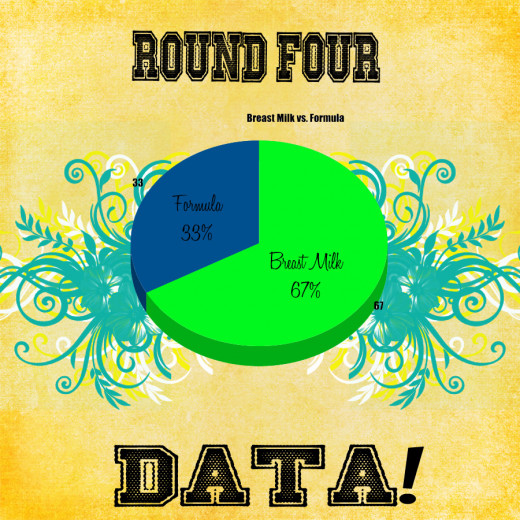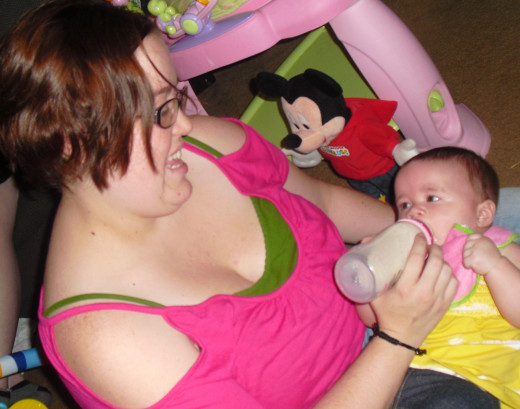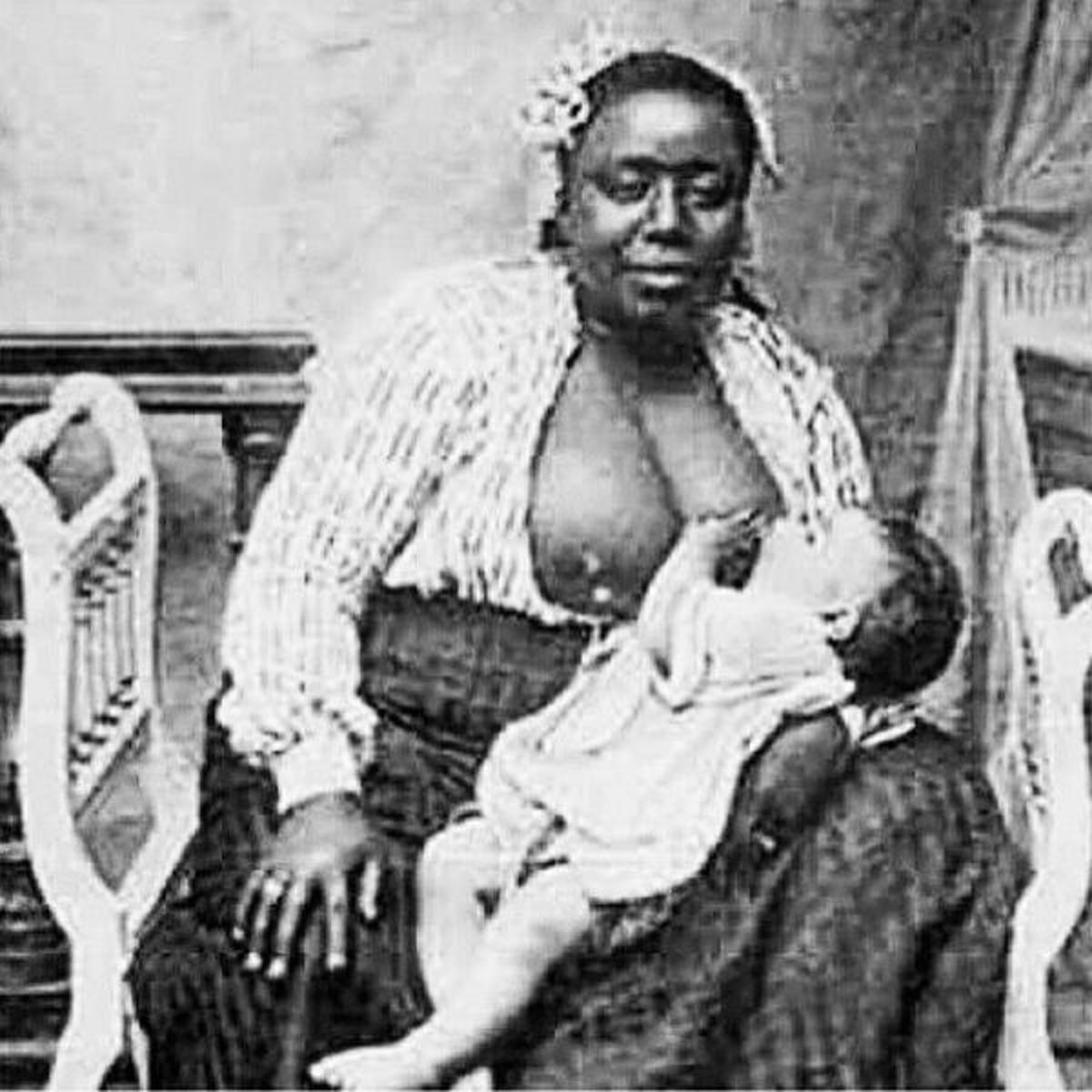The Mommy Wars: Round Four: Breast Milk vs. Formula


What This Battle Is About
Breastfeeding - The method of feeding a baby milk directly from the breast.
Formula Feeding - The method of feeding a baby milk commercially prepared as a nutritious alternative to breast milk.
Conclusions of the Survey
Upon looking at the results of the battle between feeding your child breast milk and formula, the clear winner in this round is breast milk. While looking at the comments of the survey, the people responding have a cut and dry opinion on the way best to feed you baby.
The most comments regale the positive effects on the baby nutritiously for breast milk. The most common reason for people to feed their child breast milk was it was the 'natural' thing to do and it was cheap and convenient for their child. It was also mentioned that it was the best way to build a bond with your child by breastfeeding. The connection between mother and child is heightened, according to most responses to the survey, which made it the top choice of feeding their child.
On the other side of the line, the battle was drawn by parents who feed their children formula. The main reason for formula was a failed attempt at breastfeeding due to medical reasons or emotional reasons. It was also stated in numerous comments that there wasn't enough support for their breastfeeding attempts and formula was what they 'knew' from their own experiences.
When reading through the comments and responses of this survey on the battle between which is best to feed your child, it was also noticed that most people felt it was okay for a woman to use formula if there was an extenuating circumstance such as health, sexual abuse history, post partum depression, or some other difficulty physically with the breastfeeding option. However, it was noted over and over that if a woman didn't TRY to breastfeed in earnest they may be judged, albeit silently, by her fellow women.
Women who try to breastfeed but don't put 'enough effort' into it according to those who breastfeed will be more likely to be judged by their fellow mothers who do breastfeed. The results of this survey do show a gray area in the judgement of this particular topic. Because there are several options for support, lactation consultants and breastfeeding support groups for example, it makes the option not to try, a focal point for most breastfeeding advocates in regards to using the other option.
If you tried and was not successful, then compassion sets in for those women and children who "can't" breastfeed. However, it seems that according to the responses of the survey conducted, if you don't try - you may be considered an inferior mother when it comes to feeding your child.

Weigh In On The Debate!
Did You Primarily Use Breast Milk or Formula to Feed Your Child?
Pros and Cons of Breast Milk
PROS:
- Most studies show the very best nutritional value of a mother's milk. It is full of the natural vitamins and minerals and nutrients that a newborn baby needs to have the best start in life .The makeup of the breast milk is said to be the "perfect" food for a the baby's digestive system and to help build up a baby's immune system.
- The antibodies passed from the mother to the baby via breast milk can assist in helping being as infection fighting barrier against diseases that may take over a small child's body. In this case, it has been shown in many studies that breast milk can fight and possible prevent some childhood diseases such as ear infections, asthma, allergies, and respiratory infections.
- A big benefit of breast milk is not just health related but financial gains. Breast milk is free and if a mother can breastfeed it is a free alternative to feeding the baby and on hand at all times. Breast milk doesn't take time to prepare and it is always at the right temperature for baby, there is no worry about whether it will be available when baby cries for food at odd hours and times.
- Benefits for the mother while breastfeeding are weigh loss and confidence. It has been shown that mothers who breastfeed not only have a stronger bond with their baby, but they also have been known to shed their baby weight faster, in turn giving them a sense of confidence and the ability to provide breast milk to your baby can give you self-esteem boost.
CONS:
- Breastfeeding can come with it's own set of challenges. The most common is feeding in public. As breasts have become a sexual image, it may be seen as inappropriate to feed baby in public and the stigma of having baby to breast in front of people is still a taboo issue among some older generations of people who find modesty to be paramount.
- This method of feeding comes with more stress and discomfort on the mother's part. If there are problems with latching and/or let down in the way of milk, it can make the mother's time of breastfeeding initially harder. The challenge of getting a baby to latch properly and making sure that both mother and baby are comfortable can cause abrasions on the nipples and cracked and sore nipples have been a large part of discomfort in breastfeeding.
- Women who may have medications or medical issues may have a harder time breastfeeding. It is possible to pass certain medications to the baby and there are several side effects for baby in that aspect. It may be more beneficial for the mother's health and well being to either stop taking medications or stop breast feeding - that sort of choice can take a toll on a mother's self-esteem. Breast reductions and/or some medical conditions make it difficult to get breast feeding started and can cause a mother to give up on the effort earlier on that expected.



Pros and Cons of Formula
PROS:
- The main reason for formula and benefit of manufactured milk for baby is that formula is made to be as nutritious as breast milk in way of vitamins and minerals that are good to sustain the child's food needs and immune system booster. The formula made for babies cannot be reproduced at home, but may have benefits that can help even breast feeding babies in supplementing their meals.
- Convenience is a big factor when it comes to positive effects for formula feeding. Once a bottle has been made and formula has been mixed, the mother would not have to be the sole caregiver anymore. A bottle would allow a child to be cared for by a spouse, partner, or grandparent during feeding. This can be beneficial for the mother's rest as well as facilitate a bonding experience for a secondary parental figure or caregiver.
- A child on formula doesn't digest as well as breast milk, however, it does make it more possible that a child's eating habits will be less frequent than that of a breastfed baby.
CONS:
- The challenges with formula are mostly dealing with expense. Formula is not free and the cost of the manufactured milk for baby can be expensive, sometimes more expensive than a mother may be able to afford. There are programs such as WIC that can help a mother or parent purchase the food their child may need.
- Preparation of formula in a bottle can be considered complex for some. The packaging of the formula does have instructions, but it may be difficult to manage in times of water shortages or lack of keeping the water temperature regulated.
- Manufacturers of formula cannot get an exact match to breast milk, in that, formula does have a missing set of vitamins and definitely misses the antibodies that is found in breast milk from a mother's breast. The lack of antibodies does mean that formula doesn't keep up an additional layer against infection and illness breast milk can give a baby.

Comments From Both Sides
- "I have to take medication which can be transferred through breast milk. Obviously breast milk is best for baby, but formula works just fine for us."
- "Better for baby, but it was easy for me to do. If it hadn't been possible, I would've been ok with formula."
- " This is a hard one. I chose formula because this is what I used. It is better for the baby to have breast milk but I guess it just depends on Mom. You can still have closeness and bonding with baby while feeding from a bottle. Breast milk is awesome for you're first child, but as an on the go mom with more than one child I used formula."
- "Not everyone can breastfeed, but I do think it's important to try. If it doesn't work for you, fair enough."
- "I am a proponent of breast milk. I think every mother should give it their all to breast feed or to pump. But no mother should ever judge another mother for using formula."
- "Breast milk. I don't eat only processed food, why would I give my tiny infant only processed 'foods'?"
- "Breast milk is for human babies. There is no substitute. It has everything a baby needs. Formula only contributes to poor nutrition and increases the risk of illness."
- "It's free. It's better for the baby. This is a true bias for me. If you could breastfeed but didn't, I will (silently) judge you. Although I know at least one person who tried and couldn't, no judgement there I promise!"
- "I have low milk supply and have had to supplement (up to 1/2) with formula for both of my children. When you do both you get judgement from both sides. People who formula feed don't like you because you continue to breastfeed and breast feeders tell you you could have done more to breastfeed."
Want to Learn More About The Other Battles?
To go to the homepage of this web series click here.






